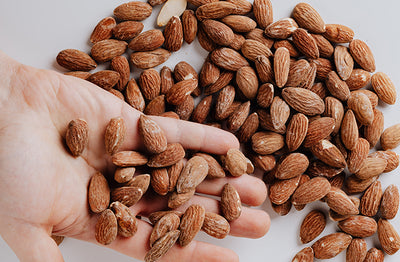If you’re at work reading this article, then you’re probably not using your time as effectively as possible. That’s OK, learning how to free those lost minutes is an important skill, and one that practically everyone needs help with.
Plan
Make lists. I’m sure you’ve been food shopping without a list. in your mind, your goal is to “Get dinner”, so you go to the meat section, then the vegetables section, then you remember that you’re out of cheese, so back to dairy, then you remembered you have run out of
Gold Standard Pre-Workout by
Optimum Nutrition or your favorite
Quest Nutrition Quest Bars… before you know it you’ve criss-crossed the whole store four or five times. It's great extra exercise, but this isn’t your exercise time, it’s your food shopping time. Get it done quick and you might be able to squeeze a run in later!
Your day is just like that. If you have a vague set of tasks you want to achieve for the day, you might get them, but not in the most efficient way.
To improve your efficiency, a lot of people recommend the Eisenhower method:
1) Urgent and Important
Examples:
Vital tasks that have gone over deadline.
A family emergency.
You’ve been shot, and need to get medical attention rather rapidly.
These are things that are very important, you need to do them to keep moving towards your goal, but they’re often unexpected or added on top of your daily tasks, so you can’t put them off. They have to be done NOW.
These are usually the things that put every other priority out of order. Ideally, you want nothing in this category, and where possible, you want to make sure that whatever made this task urgent is addressed so that it doesn’t happen again. For example, if you are driving to work and realise that you’re running late AND you don’t have enough fuel to get there. Getting fuel is both important and urgent now, because without it you may not get to work at all. In the future, you can avoid this by filling up the night before, so it's an important task that you have to do, but not an urgent one.
2) Important, but not urgent
Examples:
Doing the daily tasks expected of you.
Building personal relationships.
This is where you should be spending most of your time. They’re tasks that you need to do, but you’re on top of them. If you neglect them, they can move up to “urgent”, so the goal is to make sure that you get onto it before it gets to that stage.
Because these tasks don’t have the same sense of urgency as sections 1 and 3, they can sometimes be ignored. Like if you’re writing that important email, but your friend is calling you on your mobile. It’s probably more fun to answer the call, but you already know that you need to finish that email before it becomes urgent.
3) Urgent, but Not Important
Examples:
Incoming phone calls.
Answering emails.
Interruptions that don’t affect tasks in sections 1 and 2.
These are the things that pop up to distract you, but don’t really help you. The call for your attention, but they’re more likely to help you procrastinate than progress towards your goal.
You should be trying to spend as little time on these tasks as possible, especially if there’s any tasks in section 1 and 2 remaining.
4) Not Urgent and Not Important
Examples:
Sneaking a Facebook check.
Browsing junk mail.
Snacking because you’re bored.
These are the big time wasters in your day. You need to avoid these if you’ve still got things to do in other categories. If something isn’t helping you move towards your goal, it’s not important.
Summary:
So to bring it all together, here’s the categories again:
Urgent and important: Get these done, then plan on how you can avoid them becoming “urgent” in the future.
Not Urgent and important: This is your home. You should be spending about 80% of your time here.
Urgent and not important: These are interruptions, handle them as quickly as possible, then get back to the other tasks.
Not urgent and not important: These are the time-killers. They’re usually the most fun, so feel free to do them, but AFTER the rest of the stuff is done. Besides, it’s much more enjoyable to be munching on
protein bars without having to go back to work, or worse, worry that the boss is going to catch you and you’ll find yourself on the unemployment line.
Follow this plan and you’ll be surprised at how many tasks that take up so much of your time are unnecessary. Prioritising things correctly means that you have more time to get the important things done, and you spend less time on irrelevant crap.
Good luck, and remember to keep at it. You won’t be able to change your habits overnight, but if you stick with it, you’ll be surprised at how much more you can achieve.
Read More:















